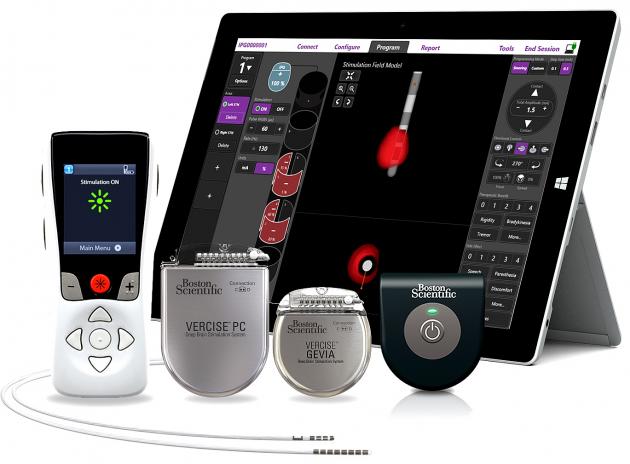
Boston Scientific Korea launched Vercise DBS systems for patients with movement disorders such as Parkinson’s, dystonia, and essential tremor, this month.
The system also gained reimbursement from the Ministry of Health and Welfare starting on June 1, allowing patients with movement disorders to benefit from coverage, according to the company.
Deep brain stimulation (DBS) is a procedure that controls abnormal motor symptoms of patients by inserting an electrode into the brain and applying electrical stimulation. The stimulus may regulate signaling in the brain, resulting in improvement of movement disorder symptoms.
The U.S. Food and Drug Administration approved Vercise in December recognizing the drug’s efficacy and safety, in a 2015 VANTAGE study published in the Lancet Neurology.
Findings from the VANTAGE study showed the average UPDRS III score of 40 patients with Parkinson’s disease improved from 37.4 points to 13.5 points in 26 weeks. Data also showed a statistically significant improvement in patients' quality of life and reduced use of Parkinson's medication.
The company will release the DBS system in two product classes: the chargeable battery Vercise Gevia and the non-rechargeable Vercise PC.
Both Vercise PC and Gevia use Boston Scientific's Multiple Independent Current Control (MICC) method that stimulates the target area with high accuracy. Gevia’s patented Zero Volt technology also allows for recharging when the battery is entirely out, the company said.
The products hold a battery life of 25 years, reducing the physical and economic burden of the patient while increasing patient convenience.
"We are confident that we will be able to offer options to improve the quality of life of patients who have Parkinson's disease and movement disorders through the launching of Vercise in the domestic market,” said Jung Yeri, director of Boston Scientific Korea’s Neuromodulation Division.
Parkinson's disease, along with dementia and stroke, is considered to be one of the disorders to most commonly affect the elderly. According to the National Health Insurance Service, the number of patients treated with Parkinson's disease rose from 61,556 in 2010 to 100,716 in 2017, up more than 1.5 times in the past eight years.

